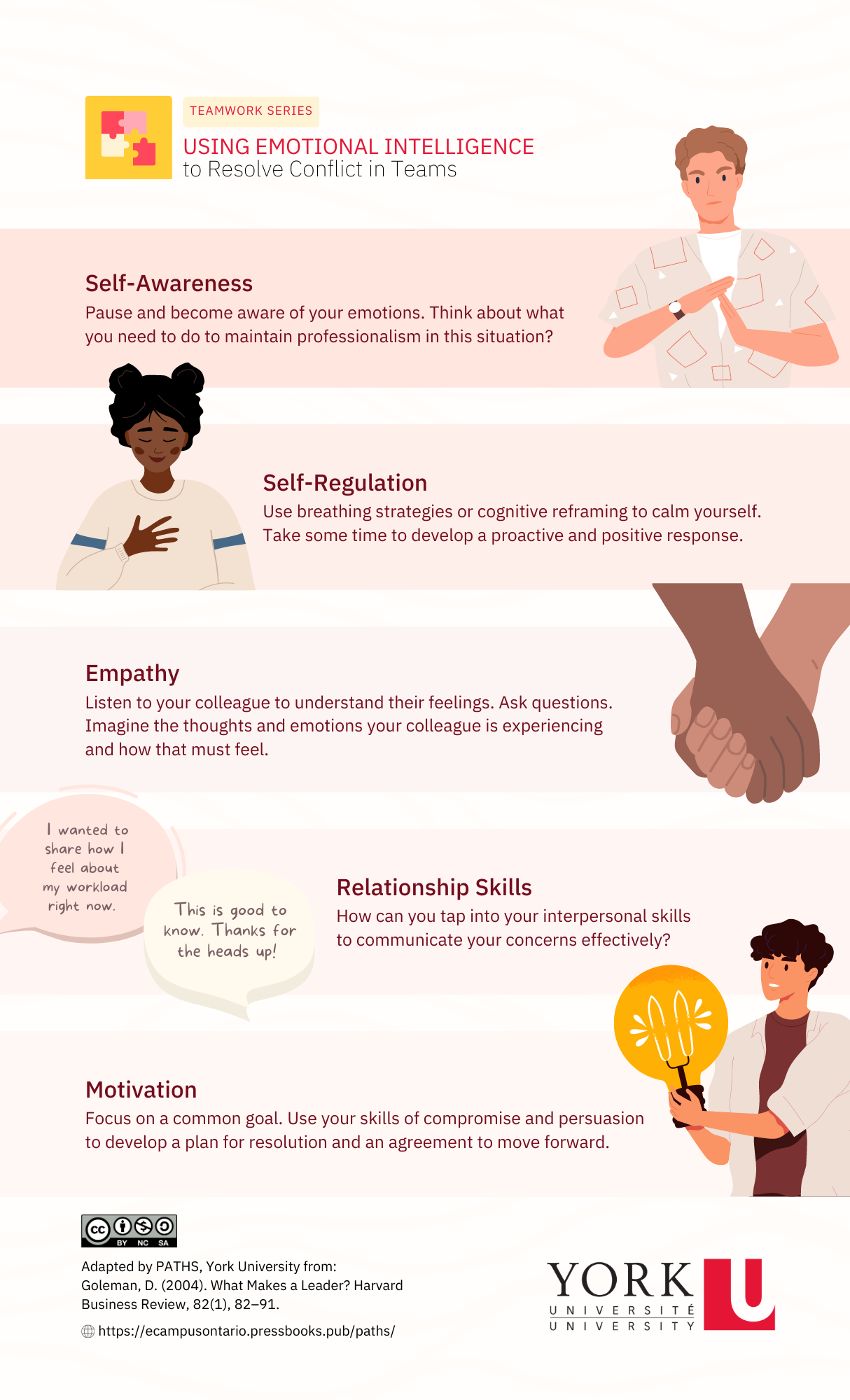
How to Become a Emotional Intelligence Expert: A Step-by-Step Guide
Ever wondered why some people seem to navigate social situations with ease, while others struggle? The secret often lies in emotional intelligence (EI).
Developing EI can be your key to better relationships, successful careers, and a more fulfilled life. Imagine being able to understand and manage your emotions, while also empathizing with others. This isn’t just a skill for the naturally gifted—it’s something you can learn and master.
We’ll break down the steps to boost your emotional intelligence, providing you with practical tips that can transform the way you interact with the world. Ready to unlock the power of your emotions? Let’s dive in and explore how you can become emotionally intelligent, starting today.
Understanding Emotional Intelligence
Emotional intelligence is key to understanding yourself and others. It helps us manage our emotions and connect better with people. By understanding emotional intelligence, we improve our relationships and decision-making skills. Let’s explore the components and significance of emotional intelligence.
Components Of Emotional Intelligence
Emotional intelligence comprises several components. Self-awareness is one. It means knowing your emotions and their effects. Another component is self-regulation. This involves controlling your impulses and staying calm.
Motivation is also vital. It drives us to achieve our goals. Empathy is understanding others’ emotions and responding appropriately. Lastly, social skills help us interact and build relationships.
Importance Of Emotional Intelligence
Emotional intelligence enhances personal and professional life. It aids in effective communication and conflict resolution. People with high emotional intelligence often succeed in leadership roles.
It also contributes to mental health. By managing emotions, stress levels are reduced. Emotional intelligence fosters a positive work environment. It leads to better teamwork and productivity.
Assessing Your Current Emotional Intelligence
Evaluating emotional intelligence starts with self-reflection on feelings and reactions. Notice emotions during daily interactions. Understanding these patterns aids in nurturing emotional growth and awareness.
Understanding and improving your emotional intelligence begins with assessing where you currently stand. Knowing your strengths and weaknesses in this area helps you better navigate your emotions and relationships. Before you can enhance your emotional intelligence, you need to have a clear picture of your current abilities.
Self-assessment Techniques
One way to assess your emotional intelligence is through self-assessment. This involves taking a close look at how you manage your emotions in different situations. Ask yourself: Do you keep your cool under pressure, or do you find yourself overwhelmed by stress? Journaling can be a powerful tool here. Write down your thoughts and feelings at the end of each day. Reflect on how you handled various emotional situations. There are also online quizzes and tests specifically designed to measure emotional intelligence. While not perfect, they can provide insight into areas you might need to work on.
Feedback From Others
Feedback from others can be eye-opening. Sometimes, we aren’t fully aware of how our emotions affect those around us. Have you ever asked a friend or colleague how they perceive your emotional reactions? Consider reaching out to trusted friends, family, or co-workers for honest feedback. Ask them about specific incidents where your emotions played a role. Be open to what they have to say. Remember, their perspective can shed light on blind spots you might have missed. Combining self-assessment with external feedback provides a more comprehensive view of your emotional intelligence. It’s a proactive step towards becoming more emotionally aware. What will you discover about yourself today?
Developing Self-awareness
Developing self-awareness is the foundation of emotional intelligence. It enables you to understand your feelings and reactions. This understanding helps in managing emotions effectively. By being aware of your emotions, you can respond thoughtfully rather than impulsively.
Identifying Emotions
Recognizing emotions is the first step. Each feeling carries a unique message. Happiness, sadness, anger, or fear. Identifying them provides insight into your mental state. Notice your reactions to different situations. Are you calm, anxious, or excited? Pay attention to physical cues like a racing heart or clenched fists. Journaling can be helpful. Write down your feelings regularly. It clarifies your emotional patterns over time.
Mindfulness Practices
Mindfulness enhances self-awareness. It involves focusing on the present moment. Notice your thoughts without judging them. Breathing exercises are useful. Take deep breaths and concentrate on the sensation. Meditation is another effective practice. Sit quietly and observe your thoughts. Let them pass without dwelling on them. Mindfulness reduces stress and increases focus. It helps you understand your emotions better.
Improving Self-regulation
Improving self-regulation is an essential component of emotional intelligence. It involves managing your emotions effectively and reducing stress to maintain balance in your life. When you master self-regulation, you gain control over your reactions, making thoughtful decisions rather than impulsive ones. Let’s dive into practical ways to enhance your self-regulation skills.
Managing Emotions
Understanding your emotions is the first step towards managing them. Ask yourself: What triggers my emotional responses? When you identify these triggers, you can anticipate your reactions and prepare accordingly. This awareness allows you to pause and choose how to respond.
Consider adopting a technique like journaling. Writing down your feelings and thoughts regularly can help you see patterns in your emotions. It’s like holding up a mirror to your emotional state, showing you what needs attention. This reflection helps in adjusting your responses and handling situations more calmly.
Another strategy is visualization. Picture yourself in a challenging situation and imagine responding with poise and calmness. This mental rehearsal can build your confidence in managing emotions effectively when the real moment comes.
Stress Reduction Strategies
Stress is often unavoidable, but how you handle it can make all the difference. Are you aware of your current stress level? Assessing your stress regularly can help you catch it before it spirals out of control.
Simple breathing exercises can be a game changer. Try taking deep, slow breaths when stress hits. This activates your body’s relaxation response, helping you regain focus and clarity.
Physical activity is another powerful stress reducer. A brisk walk or a quick workout can clear your mind and boost your mood. Even a short burst of exercise can help regulate stress hormones and improve your emotional state.
Have you considered mindfulness or meditation? These practices encourage living in the present moment, reducing anxiety about the future or regrets about the past. Incorporate a few minutes of mindfulness daily to enhance your emotional regulation.
Improving self-regulation isn’t just about controlling your emotions and stress. It’s about creating a life where you feel empowered and in control. As you refine these skills, how might your relationships and decisions evolve? Your journey to emotional intelligence starts here, and every small step counts.
Enhancing Motivation
Enhancing motivation is a key aspect of developing emotional intelligence. A motivated person can achieve their goals with greater efficiency. By focusing on your motivation, you can improve both your personal and professional life. Let’s explore some effective ways to enhance motivation.
Setting Personal Goals
Setting personal goals gives direction to your efforts. Clear goals help you stay focused and organized. Start with small, achievable goals to build confidence. As you progress, set bigger challenges for yourself. Write down your goals to make them real. Review them regularly to track your progress. This keeps you motivated and committed to your path.
Cultivating A Positive Outlook
A positive outlook can greatly enhance your motivation. Optimism helps you overcome challenges and setbacks. Practice gratitude by listing things you are thankful for. This simple act can shift your mindset positively. Surround yourself with positive influences, like supportive friends. Engage in activities that uplift your mood. Remember, a positive mind fuels motivation.

Building Empathy
Empathy is a vital skill in emotional intelligence. It helps you connect with others. Building empathy involves understanding and sharing feelings. This ability enhances communication and strengthens relationships. Two essential components of empathy are active listening skills and understanding others’ perspectives.
Active Listening Skills
Active listening is more than hearing words. It requires focus and attention. Engage fully with the speaker. Show interest in their message. Nod and maintain eye contact. Reflect on what they say. Ask questions to clarify their thoughts. Avoid interrupting during conversations. This encourages open dialogue. Active listening builds trust and empathy.
Understanding Others’ Perspectives
Understanding different perspectives broadens your outlook. Consider the experiences of others. Try to see the world through their eyes. Acknowledge their feelings and beliefs. This helps you relate better. It fosters mutual respect. Be curious about their viewpoints. Ask questions without judgment. Recognize the uniqueness of each person. This deepens your empathy. It creates more meaningful connections.
Strengthening Social Skills
Strengthening social skills is key to improving emotional intelligence. These skills help us connect, build relationships, and understand others. They are the foundation of effective communication and conflict resolution. By enhancing these skills, we can navigate social settings with ease. Let’s explore some techniques to boost your social skills.
Effective Communication Techniques
Communication is more than just words. It involves listening, observing, and interpreting non-verbal cues. Practice active listening by giving full attention to the speaker. Nod your head to show understanding. Use simple words to ensure clarity. Avoid interrupting and wait for the speaker to finish. This shows respect and patience.
Maintain eye contact to convey confidence. Use gestures to emphasize points. Keep your tone friendly and open. This invites others to share their thoughts. Ask questions to show interest and encourage dialogue. Effective communication builds trust and strengthens connections.
Conflict Resolution Strategies
Conflicts arise in all relationships. Handling them well is crucial for emotional intelligence. Stay calm and composed in heated situations. Deep breaths can help manage emotions.
Listen to the other person’s perspective. Acknowledge their feelings and concerns. This shows empathy and understanding. Express your thoughts clearly without blaming. Use “I” statements to avoid accusations. For example, say “I feel upset when…”.
Find common ground and focus on solutions. Brainstorm ideas together. This promotes cooperation and compromise. End the discussion on a positive note. Thank the person for their time and willingness to resolve the issue.

Practical Applications Of Emotional Intelligence
Emotional intelligence isn’t just a buzzword; it’s a skill that can transform your interactions in profound ways. Understanding how to apply emotional intelligence practically can enhance both your professional and personal life. Imagine navigating complex situations with ease, connecting deeply with others, and handling stress effectively. Let’s dive into how emotional intelligence can be utilized in various aspects of life, starting with the workplace and then moving into personal relationships.
In The Workplace
Imagine being in a meeting where tensions are high. Emotional intelligence helps you read the room and respond thoughtfully. It aids in managing your own emotions and understanding the emotions of others. This insight fosters better communication and conflict resolution.
Start by improving your active listening skills. Listening with empathy can make colleagues feel valued. Engage with their concerns genuinely. This builds trust and encourages collaboration.
Consider how you handle feedback. Instead of reacting defensively, use emotional intelligence to view feedback as a learning opportunity. Reflect on your emotions, and respond constructively. This approach can improve your professional growth and open up opportunities.
Are you leading a team? Emotional intelligence can be your secret weapon. Understand the unique strengths of each team member. Encourage a supportive environment where everyone feels heard and motivated. This can increase productivity and morale.
In Personal Relationships
Picture a heated argument with a loved one. Emotional intelligence can help you pause and assess the emotions involved. This doesn’t mean ignoring your feelings; it’s about understanding them and communicating effectively.
When expressing emotions, clarity is key. Use “I” statements to convey how you feel without blaming others. For example, say “I feel upset when…” This can prevent misunderstandings and promote healthy dialogue.
Practicing empathy is another crucial application. Try seeing situations from the other person’s perspective. Ask yourself: How might they be feeling? This can deepen your connection and make interactions more meaningful.
Think about how you resolve conflicts. Emotional intelligence encourages finding solutions rather than dwelling on the problem. Approach disagreements with a mindset focused on resolution and mutual respect.
Are you nurturing a relationship? Emotional intelligence helps you recognize and appreciate the emotions of your partner. Celebrate their wins and support them in tough times. This can strengthen your bond and create lasting happiness.
How have you applied emotional intelligence in your life? Consider these strategies and see the positive impact they can have on your relationships. Whether at work or at home, emotional intelligence is a valuable tool that can enhance your interactions and enrich your life.
Continuous Learning And Development
Continuous learning and development are essential if you want to become emotionally intelligent. It’s not just about understanding your own emotions but also recognizing and interpreting the emotions of others. This journey requires dedication and a willingness to grow. You need to adopt habits that foster emotional awareness and refine your skills consistently. Let’s dive into some practical ways to nurture your emotional intelligence.
Books And Resources
Books are a treasure trove of knowledge, and there are plenty that can enhance your emotional intelligence. Consider diving into Daniel Goleman’s “Emotional Intelligence” to understand the basics. Or pick up Travis Bradberry’s “Emotional Intelligence 2.0” for practical strategies. These resources offer insights that can transform your understanding of emotions.
Beyond books, explore online articles and blogs that delve into emotional intelligence. Websites like Psychology Today or MindTools provide free resources that can expand your knowledge. You can also find podcasts and videos that discuss emotional intelligence, offering varied perspectives and experiences.
Workshops And Courses
Workshops and courses provide hands-on experience with emotional intelligence. They offer interactive sessions where you can practice skills and receive immediate feedback. Look for workshops in your community or online platforms like Coursera or Udemy that offer courses on emotional intelligence.
Participating in a course allows you to learn from experts and peers alike. You get to engage in discussions and activities that challenge your emotional perceptions. This can be a powerful way to deepen your understanding and apply emotional intelligence in real-world scenarios.
Have you ever thought about how a single workshop could reshape your approach to emotions? Attending one might be the catalyst you need to start noticing the emotional cues around you more clearly.
How do you plan to continue your learning journey? The resources and experiences you choose can significantly influence your emotional growth. Embrace the variety and keep pushing your boundaries. What steps will you take today to grow your emotional intelligence?
Frequently Asked Questions
What Is Emotional Intelligence?
Emotional intelligence is the ability to understand and manage your emotions effectively. It involves self-awareness, empathy, and interpersonal skills. Developing emotional intelligence can enhance personal and professional relationships. It helps in managing stress, improving communication, and resolving conflicts. Emotional intelligence is crucial for leadership and personal growth.
Why Is Emotional Intelligence Important?
Emotional intelligence is vital for building strong relationships and achieving personal success. It helps in recognizing and managing emotions, leading to improved communication. It enhances empathy and understanding in social interactions. High emotional intelligence is linked to better mental health, adaptability, and decision-making skills.
How Can I Improve My Emotional Intelligence?
Improving emotional intelligence involves self-reflection and practice. Start by observing your emotional reactions and identifying triggers. Practice active listening and empathy in conversations. Seek feedback to understand how others perceive your emotional responses. Engage in stress-reducing activities like mindfulness or meditation.
Continuous learning and self-awareness are key.
Can Emotional Intelligence Be Learned?
Yes, emotional intelligence can be learned and developed over time. It requires dedication and self-awareness. Start by recognizing your emotions and understanding their impact on behavior. Practice empathy and active listening. Seek feedback and reflect on your interactions. With consistent effort, emotional intelligence can be significantly improved.
Conclusion
Becoming emotionally intelligent can transform your relationships and career. Start with self-awareness. Recognize your emotions and understand them. Practice empathy by listening to others. Respond calmly in conflicts. Improve your social skills. Build strong connections with people. Emotional intelligence grows with practice and patience.
Embrace feedback. Learn from mistakes. Keep growing and adapting. Remember, it’s a journey, not a destination. Consistent effort leads to progress. You can enhance your emotional intelligence step by step. Soon, you’ll notice positive changes in your life. Stay committed to your growth.
Your future self will thank you.





